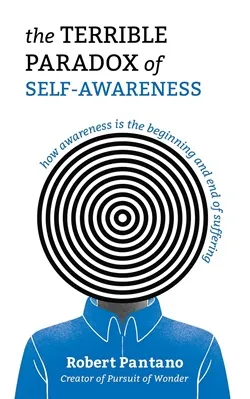
Review Transparency
I received a free digital copy of this book from the publisher via NetGalley in exchange for an honest review. My opinions are entirely my own.
I loved this beautiful collection of aphorisms. Pantano does something really interesting here: he takes some major hits of the history of philosophy–largely 19th century German philosophy–and combines it with some nascent ideas of consciousness coming out of cognitive science. As a starting point, Pantano takes seriously the idea that consciousness is not a thing “out there” but an organizing principle for our experiences. The issue with consciousness, however, is it attempts to create something discrete–something “I”–out of the marvelous one of all existence. When we recognize ourselves as individuals, this is precisely what we do, and most modern societies valorize the individual experience, including those that we might normally characterize as “collectivist.”
The philosophers that Pantano draws on are largely philosophical pessimists–Emil Cioran and Arthur Schopenhauer, to name two. But, there is also a healthy dose of Nietzsche and Kierkegaard here, both of whom fought against the meaningless that they saw beginning to pervade European society. Pantano’s conclusion, in the end, is an absurdist one: it’s about recognize our powerlessness in a world that we have no control over.
There is no Serenity Prayer here: there is no request for “the courage to change the things I can.” Pantano’s perspective is, in Nietzschean and Schopenhauerian fashion, fatalistic.
It is the nature of consciousness to see how everything goes and to plead and cry for it to be different. But it won’t be different. It can’t be different.
This sort of determinism makes sense in a Newtonian universe where everything affects everything else, and God is the watchmaker. But, since the quantum revolution, the introduction of chance has offered a great deal of possibility for free will. Pantano dodges these questions, I think rightfully.
The book is organized thematically: there are chapters on creativity, anxiety, anger, despair, madness, nihilism, hope, freedom, futility, time, wisdom, and so many more. Each chapter begins with a one or two paragraph image, something along the lines of:
He lays the human psyche bare on the table, dissecting it, so he can see it for what it really is in all its horror. Out oozes the slime of absurdity and the sludge of melancholy–with which he pains; with which he transmutes, through which things become beautiful.
Some readers may be uncomfortable with what Pantano has to say here, and they may wish to argue with him. But, I think those who recognize the existence of the deep, profound interconnectedness of all things (and take it seriously) will find a lot here that makes sense. Rather than pay deference to the idea, Pantano pushes it to its furthest implications. Doing so allows him to generate beautifully-written paragraphs like:
Regret occurs when the paradox of self-awareness–the fact that we are aware of so much but given control of nothing–is never acknowledged as paradoxical. If we recognize the true scope of our unawareness and the limits of our control, it becomes obvious that we never have anything to regret.
We might want to fight for control–control of our lives, our circumstances, our opportunities, our fates–but they control us far more than we could ever hope to. Rather than continue to struggle against them, I personally find it therapeutic to submit my soul to them. To paraphrase Laozi, “When the wind blows, the grasses bend.”
The book is life-affirming and Pantano concedes that we are all ridden with malevolent characteristics; yet, these are a matter of perspective. Yin and Yang come together to create something whole. If we block out the Shadow (to use Jung’s terminology), we will produce a monster.
Pantano leaves us with a beautiful, penultimate aphorism, which I wanted to leave here for posterity:
Perhaps the closest thing to a solution to the conundrum of self-awareness is not a solution at all. Rather, it is a relinquishment of expectation–of all certainty, control, and resolution–and a commitment to simply moving with, observing, and appreciating everything as it is, as deeply and often as possible, while trying our best to be okay. To cry. To love. To try. To fail. To be. To die.
This is a must-read, and–once published–I hope that this book receives the attention it deserves!